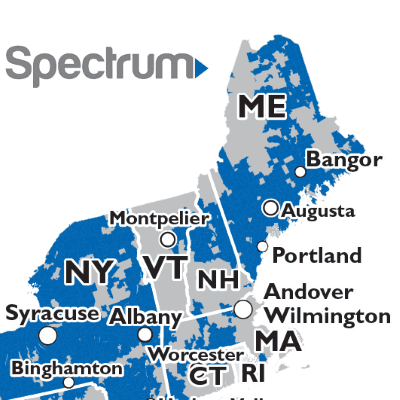
Charter Spectrum serves a significant part of the state of Maine.
The Maine state government is reviewing a measure that would require all cable operators in the state to offer customers the chance to buy individual cable channels instead of being forced into a large and costly package of dozens, if not hundreds of unwanted TV channels.
“The senior citizens in my area want to watch the Boston Red Sox,” says Rep. Jeffrey Evangelos, an independent from Friendship. “The package that Spectrum is offering in Maine that includes the Red Sox costs about a hundred bucks. These people are making $800 bucks a month on Social Security. They’re bemoaning to me at the doors, you know, ‘I can’t afford television anymore Jeff.’ And they grew up in an era when television was free.”
Maine Public Radio reports Evangelos’ solution is an insertion of a single sentence into the state franchising law:
A cable system operator shall offer subscribers the option of purchasing access to cable channels, or programs on cable channels, individually.
The proposed change won support from a state legislative committee, but scorn from cable industry lobbyists that claim the proposed measure violates federal law.
Chris Hodgdon, a Comcast lobbyist, pointed to the specific statute forbidding states from telling cable operators how to conduct business: “No state shall regulate the products, rates, services of a cable provider.”
Charter Spectrum’s regional lobbyist Melinda Kinney warned any such law would likely face immediate court challenges. Kinney complained the measure was unfair because it targets cable operators while excluding satellite and streaming providers. But consumer advocates argue that the law could actually help the cable industry as cord-cutting becomes a national phenomenon. Subscribers agree.
“I’d sign back up for cable TV in a minute if I could pick my own channels and pay a reasonable price,” said Jack Winters, 71, a former Comcast customer near Brunswick. “Comcast makes you take all or nothing so I took nothing. I miss not getting Fox News Channel, Turner Classic Movies, and Hallmark, but my bank account doesn’t.”
Sen. Angus King, the independent senator from Maine, has done his part to investigate whether such a state law would violate federal deregulation measures. He took the proposal to the FCC.
Patrick Webre, chief of the FCC’s Consumer and Governmental Affairs Bureau responded that no state has passed such a law before, so he couldn’t say much:
“In your letter you asked whether a state mandate that a cable operator provide a-la-carte services would be pre-empted by federal law. This poses a question of first impression, and we could not locate any specific Commission rules that addresses your exact issue. Thus we are not in a position to express an opinion on the question you raise.”
Under the Trump Administration, however, the Republican majority controlling the FCC would likely oppose the measure because it would introduce new regulations on the industry, something that has historically been anathema to Chairman Ajit Pai and Commissioner Michael O’Rielly. Republican Commissioner Brendan Carr, formerly a lawyer for Wiley Rein, which represents the interests of several large telecom companies, would likely also oppose the measure.
The bill now moves to the full Legislature on a tri-partisan vote of 8-2 and will be debated first in the House.
A proposed new law would require cable operators in Maine to sell individual cable channels to customers. (4:08)


 Subscribe
Subscribe Comcast wants to keep track of your health with a new device, similar to Google Home or Amazon Echo, that it plans to beta test starting later this year.
Comcast wants to keep track of your health with a new device, similar to Google Home or Amazon Echo, that it plans to beta test starting later this year. Effective today, Hulu is
Effective today, Hulu is  The top 10 service providers in the United States collectively lost over 1.25 million paid television customers in the first three months of 2019, providing further evidence that cord-cutting is accelerating.
The top 10 service providers in the United States collectively lost over 1.25 million paid television customers in the first three months of 2019, providing further evidence that cord-cutting is accelerating. Virginia officials cannot get broadband providers to reveal full details about their actual service areas, so the state now believes cable and phone companies will be more forthcoming if they can quietly share that information with each other, keeping the state government in the dark.
Virginia officials cannot get broadband providers to reveal full details about their actual service areas, so the state now believes cable and phone companies will be more forthcoming if they can quietly share that information with each other, keeping the state government in the dark.
